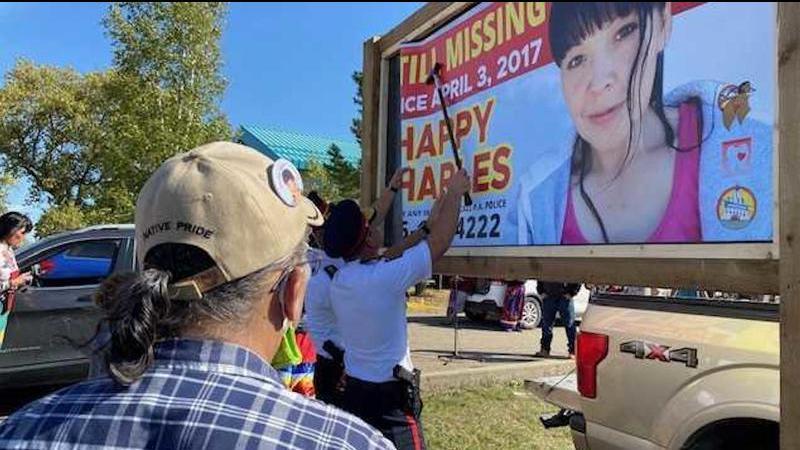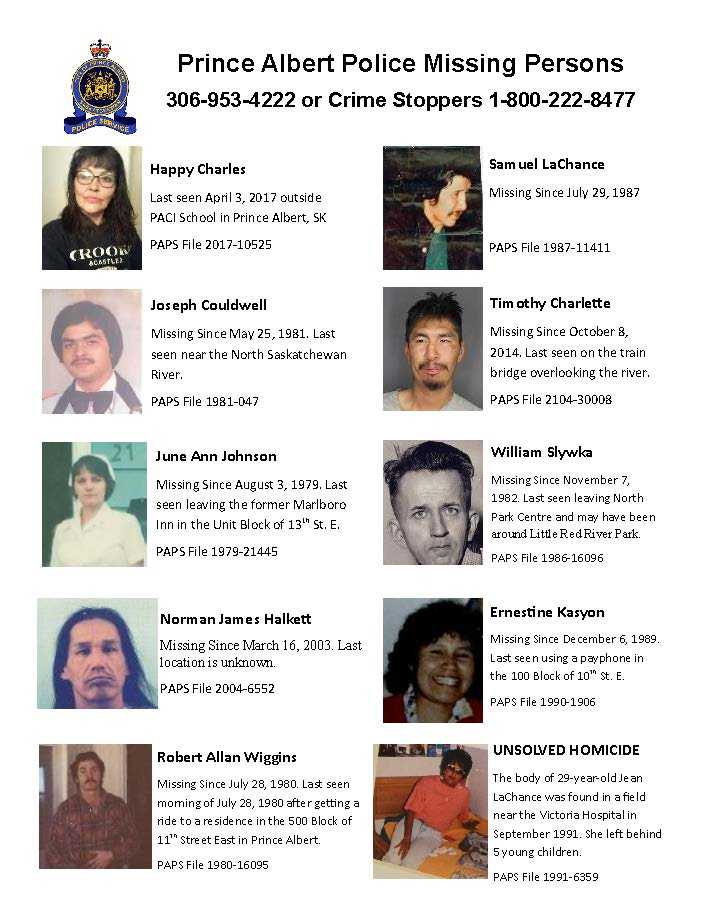
Solving the mystery: the challenges that surround missing persons cases
Just over a year has passed since a large billboard overlooking one of Prince Albert’s busiest streets was erected, but the family of Happy Charles is no closer to seeing her in person.
The file is one of nine historical missing persons case being investigated by the Prince Albert Police Service. Happy Charles was 44 when she was last seen in the city on April 3, 2017. Carson Poitras, Happy’s father, told paNOW he remains driven to solving his daughter’s disappearance.
“We are still moving forward. At least we like to think so,” he said, while also acknowledging the family has experienced a roller coaster of emotions the past four years.
Poitras explained one of the challenges for families with missing loved ones, is not putting too much hope into a tip that may at first sound promising, only to lead nowhere.



